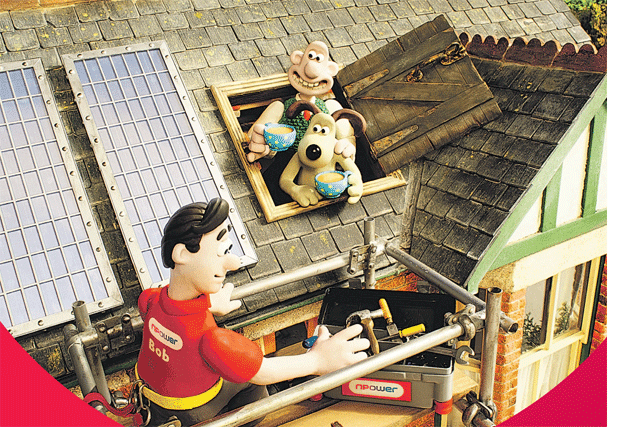
Last week, Sainsbury's became the latest brand to declare an interest in the potentially lucrative home-services and energy market, in partnership with British Gas. Other brands, including Sky and B&Q, have hinted that they, too, are eyeing the sector, so the supermarket's announcement is unlikely to be the last.
As mobile brands such as O2 are attempting to dominate a consumer's every need when they are out and about, so brands that already have a stake in the home are looking to exploit their foothold further, and the government is desperate to encourage them.
Through its 'Green Deal' initiative (see box), the coalition wants to create a 'buy-now-pay-later' system for making homes more energy-efficient. Occupants would arrange for boilers and insulation improvements to be made, and settle the cost by paying an additional monthly fee on top of their energy bills.
Financial arrangements
The service providers are to finance the scheme, raising concerns as to how smaller eco-specialists could afford to take part. However, the Department for Energy and Climate Change (DECC) hopes bigger brands will see the marketing opportunity of being able to provide a wider package of home services.
A DECC spokeswoman says the deal between Sainsbury's and British Gas is the 'kind of partnership' the government is envisaging. Tesco, B&Q and Marks & Spencer have also reportedly expressed an interest in taking part.
Big energy providers such as Npower, E.ON and British Gas have already woken up to the potential of providing services in people's homes. Npower has dedicated a growing marketing budget to its Home Team 50 call-out services, branching out from boiler-care to roof insulation, solar panels and beyond.
The government will also announce that all UK homes must contain smart meters by 2018 for measuring energy use, providing another reason for energy firms to secure their place in people's homes, due to the complex nature of the meter installation.
Indeed, we may soon see more brands in the energy, telecoms and retail sectors joining forces to win market share.
'This is going to be a long journey about getting into consumers' homes, more a marathon than a sprint. There is huge potential for all kinds of combinations of brands,' says Npower marketing director Kevin Peake.
Richard Perks, director of retail research at analyst firm Mintel, believes that there is a major commercial opportunity in home-services for big, trusted brands. 'The government has agreed to various eco-targets and it is applying pressure in various directions to help meet them,' he explains.
'Major food retailers and the likes of M&S have a great opportunity because they are so well known, and, on the whole, trusted. Tesco has the scale, which is a huge advantage, though that's not to say it will come out on top.'
Tesco launched a dedicated site, Tescohomeefficiency.com, in 2009. A spokesman says it is now looking at how to improve its offer, with in-store presence, akin to Sainsbury's' service, a possibility.
Beyond retail, there is an opening for telecoms brands such as Sky, BT and Virgin Media, each of which already regularly visits homes for installation and maintenance reasons.
Sky has for some time owned the trademark 'Sky Energy', and last year told Marketing it was 'exploring potential opportunities' in the area - although any roll-out is some way off. Virgin, however, may take a little more encouragement, given the collapse of its Virgin Energy brand in 2004.
The government believes the home-energy services sector could be transformed into a burgeoning £2.5bn business. Marketers must therefore decide whether their brands belong in the sector, and with big players such as Sainsbury's getting serious, they may not have long to make up their minds.
The 'Green Deal' explained
The UK has ambitious plans to reduce CO2. To achieve this the government must cut home-energy use and encourage micro-generation.
The biggest perceived obstacle to consumers and businesses who want to improve the efficiency of homes and properties is cost, particularly when they do not own the building in question.
In response, the Conservative Party unveiled the 'Green Deal' at its party conference in 2009. Essentially, it promised consumers access to home-energy-efficiency improvements of up to £6500, with no up-front costs.
The average family household could save up to £550 a year, with the level of repayments never to exceed savings.
In rented properties, the cost of repayment would simply pass from tenant to tenant. The Tories claimed it could lead to the development of a £2.5bn-a-year industry.
An Energy Bill, which is still referred to as the 'Green Deal' at the Department for Energy and Climate Change, is now at the committee stage and due to enter the House of Commons for debate in the spring.
The coalition plans to drive through the legislation by early next year.



.jpg)
.jpeg)
